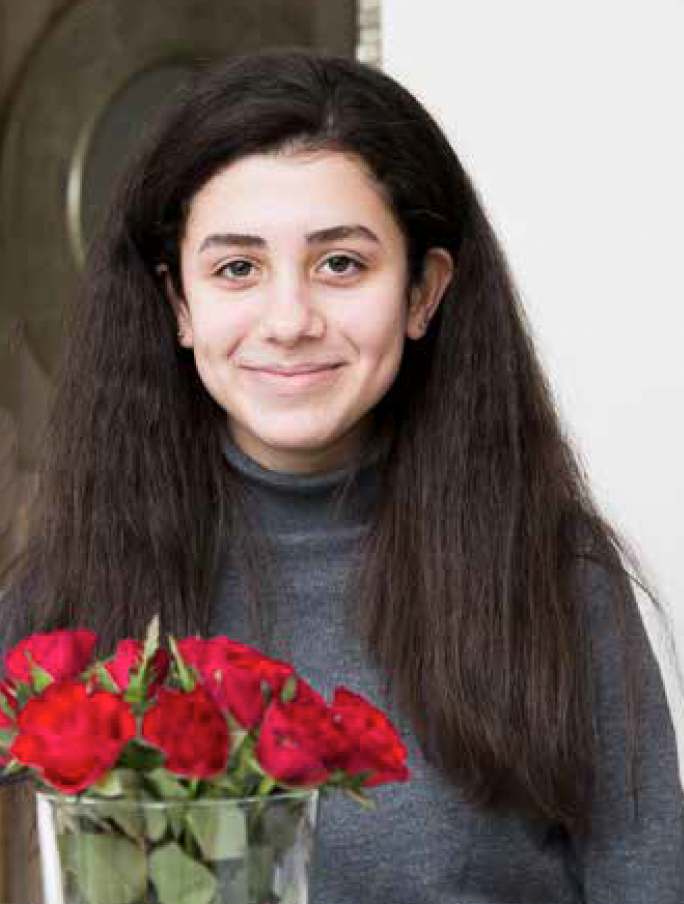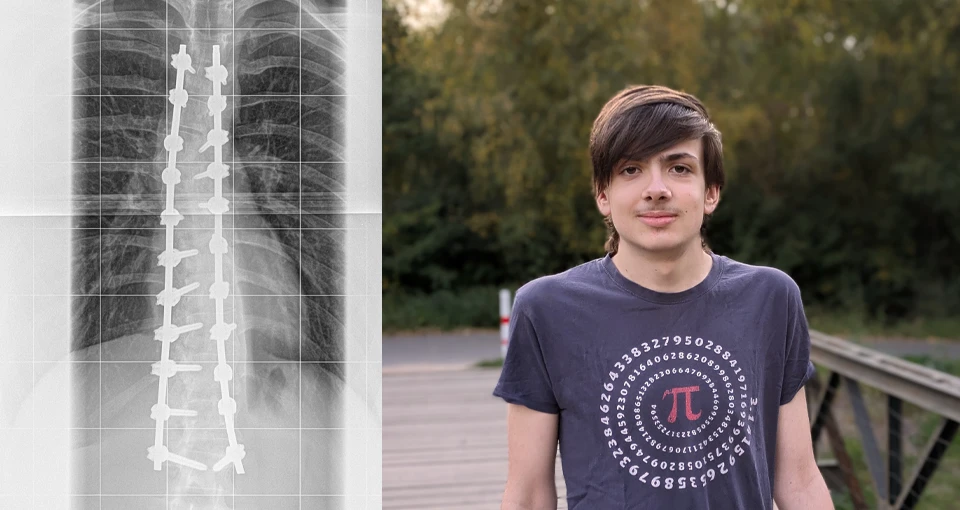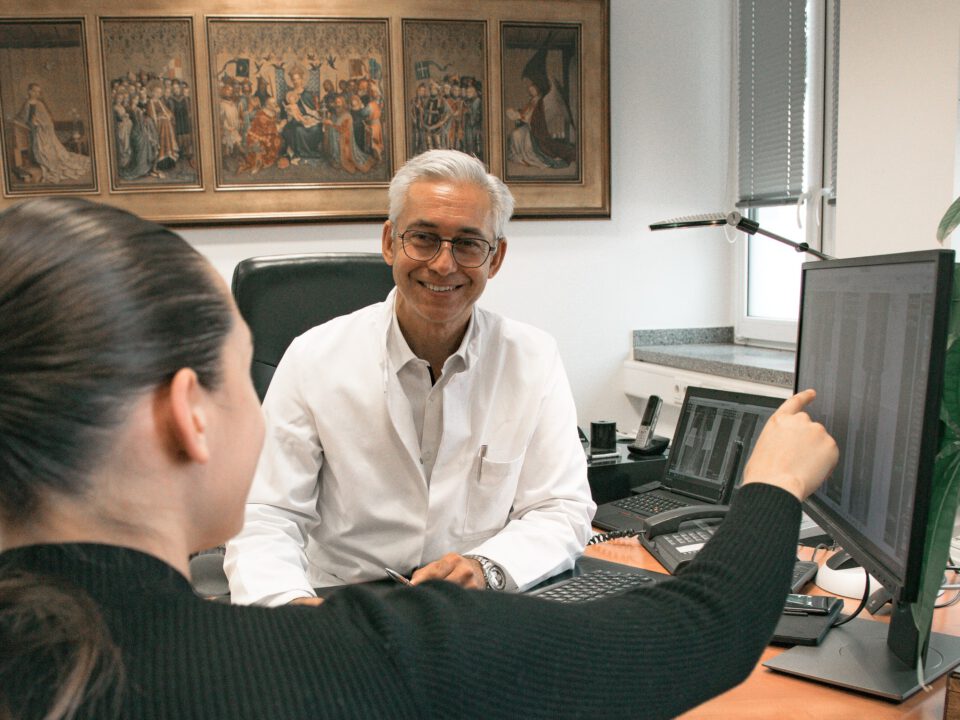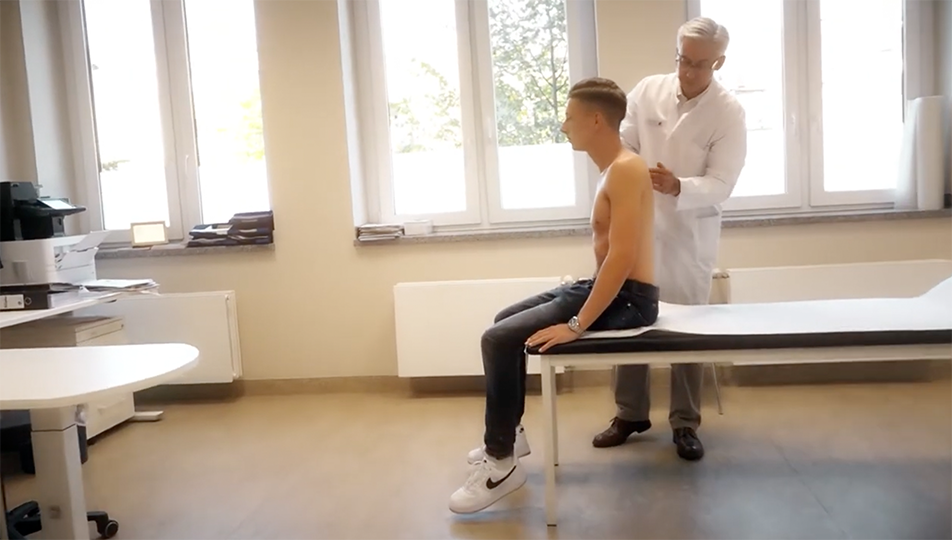
ApiFix: “It all happened too fast!”
As a teenager, you have all kinds of things on your mind. For Dilara, who is 15 and in ninth grade, those were her friends with whom she spends every spare minute at school, her mother and sister's beauty salon where she likes to help, and her future dreams of studying law.
'If something is unfair, I can't stand it. Then I have to open my mouth,' she reveals. She would like to be a lawyer or a judge one day. But then came an observation from her mother that turned everything on its head. Suddenly, a very different question dominated the family's conversations: Should Dilara have surgery? And if so, is everything really okay? 'I didn't feel like anything was wrong. But at the beginning of the year my mum said I was walking crooked and sitting crooked,' she says. At first, it didn't seem like a big deal. 'Young people are on their phones a lot. At first I thought it was bad attitude. But it was really bad," recalls Filiz Kemaloglu.
She decided to see an orthopedist with her daughter. He determined that Dilara's round back wasn't the result of too much typing on her phone, but rather a sign of scoliosis. Filiz Kemaloglu wouldn't have expected this: "You don't think about something like this because we didn't have anything to do with it before."
As recommended by the orthopedist, she made an appointment with Dr. Biren Desai at the Sana Trinity Hospital in Cologne. Here, mother and daughter were confronted with a diagnosis that left them completely unsure at first: "He advised surgery. It totally overwhelmed us: we were surprised and shocked," the mother of three describes. Dilara also remembers well how she felt about this prospect: "I was scared! At my age, even on my back - it all came too fast!" It took some time, Filiz Kemaloglu said.
Then at home there was a lot of counselling and deliberation. Dilara's older sister was also concerned and joined in. 'My family and my faith strengthened me the most during this time,' Dilara says, adding: 'I also got the opportunity to talk to another girl who had just had surgery. That gave me a lot of reassurance.' She was also encouraged by the experience of the hospital staff: 'They showed a lot of empathy, they were respectful and kind.'
ApiFix: a support that can be removed later
Her mother also expressed confidence in the doctor's assessment, especially as he wanted to operate on a still young, innovative procedure: ApiFix. This is a system that is fixed at three points on the spine and then stretches according to the ratchet principle, so that the spine is upright. This fixation remains in the back at least for the duration of the growth phase and can be removed later. The advantage of ApiFix: the back is not stiffened, but remains mobile. Not all scoliosis patients can use this procedure. If, for example, there is insufficient flexibility or the curvature is already too advanced, other treatment methods may be more suitable. In Dilara's case, where a progressive development of scoliosis was expected, but the crucial time had not yet passed, ApiFix was the perfect fit. Mother and daughter decided to have the procedure - but it wasn't easy. 'The night before I had my doubts. My mum said, "We don't have to do this. But I thought, "We've come this far, now we're going to stick with it,"' the 15-year-old says. Waiting for the surgery to finally be over is the worst thing her mother remembers: 'I was worried about whether she would make it through and I cried all the time. What if something goes wrong? Being alone with that responsibility was hell for me as a single parent. It wasn't until I saw she could move her whole body that I was happy again.' Dilara still remembers her first words after waking up: 'I've done it!' She soon realised that having her spine straightened had actually made her a little bigger: 'I felt really lucky.' Looking back, everyone in the family is happy about the decision - and proud of the petite 15-year-old who so bravely accepted her fate and now welcomes visitors with a straight face. 'Everything in life has a reason,' she says: 'You have to take it as it comes. Somehow something good should happen to me.'
This report was published in the Scoliosis Magazine of the DSN | German Scoliosis Network, 02/2019.



